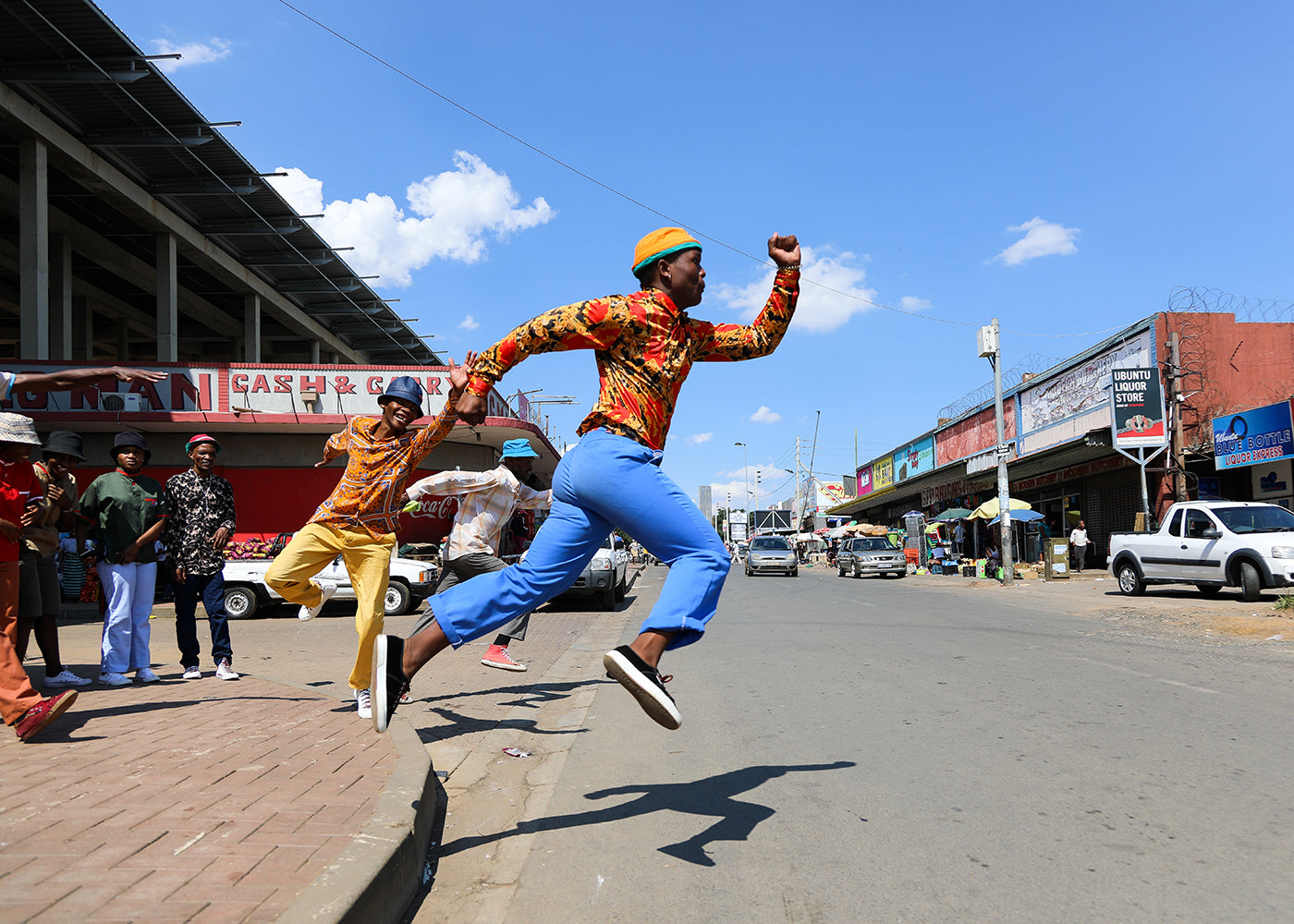Dancing and Screaming Against the Sky
“Profanations,” created by choreographer Faustin Linyekula and music artist Franck Moka, is not a “just” dance piece: it’s a live concert, a cinematic séance.
Plus
World-class review of ballet and dance.
“Your body is a repository of memory,” says the voiceover in Retrace-Retract, Gregory Maqoma's film which is part of the Dancing In The Streets series for the Edinburgh International Festival, focusing on the issue of home. ”I am your compass. . . The spirit will guide you.” Threaded throughout this beautiful, inspiring film, directed and choreographed by Maqoma, is the poetry of Jefferson Tshabalala, which interrogates issues around poverty, inequality and strategies for survival; but also of selfhood and spirituality. These particular streets—Soweto's bustling streets in South Africa—are the backdrop. They signify the return to the source, the retracing of steps, the better to make sense of Maqoma's own life.

Gregory Maqoma in “Retrace Retract.” Photograph by Moeletsi Mabe


“Uncommonly intelligent, substantial coverage.”
Your weekly source for world-class dance reviews, interviews, articles, and more.
Already a paid subscriber? Login
“Profanations,” created by choreographer Faustin Linyekula and music artist Franck Moka, is not a “just” dance piece: it’s a live concert, a cinematic séance.
PlusWhen Alban Lendorf (b. 1989) was four, he became attentive to the piano. As he explained in an interview with Pointe magazine, when his lessons advanced to the learning of a Chopin waltz, his piano teacher suggested he take dance classes to help open up the music. From the school of The Royal Danish Ballet to the company, his career rocketed forward; by the time he turned twenty-one, he was a principal dancer, still playing the piano and testing a latent gift for acting.
PlusMarie Antoinette is not an entirely sympathetic character. Her penchant for luxury and extravagance—and the degree to which she was out of touch with the lives of the majority— made her a symbol of the wealth disparity that prompted the French Revolution.
PlusAscending the Guggenheim Museum's rings through Rashid Johnson's retrospective, “A Poem for Deep Thinkers,” is a dance in of itself.
Plus
comments